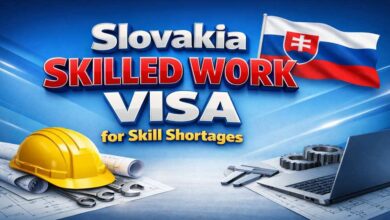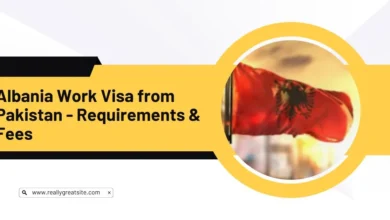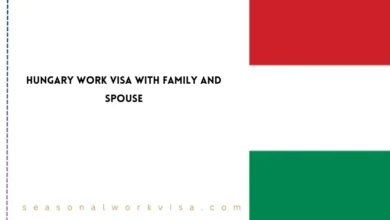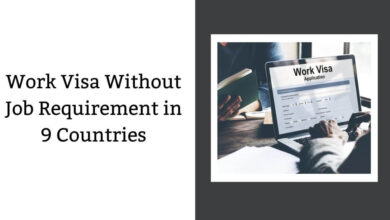France Work Visa Types 2026 – Eligibility and Process
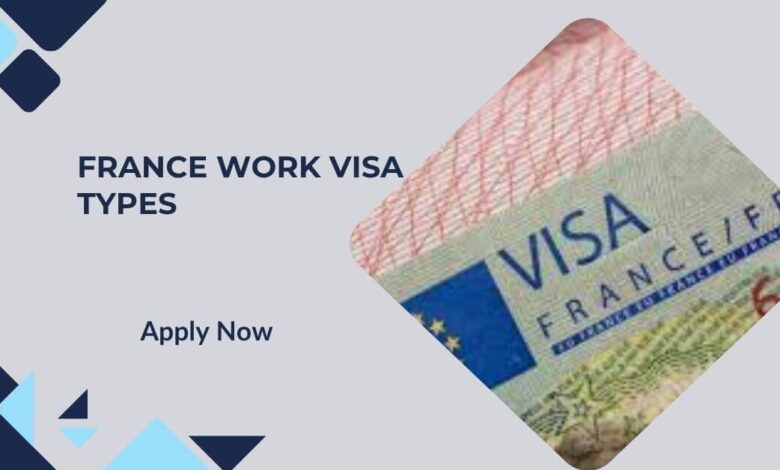
Imagine waking up in the middle of Paris, having coffee at a cute café, and then going to your dream job in one of the liveliest countries in the world. France is more than just a place to visit; it can make your professional dreams come true with its long past, delicious food, and world-famous art and culture.
France has many types of work visas that can help you reach your goals, whether they are to work in a high-level company position, start your own business, or contribute to groundbreaking research.
But let’s be honest: getting a visa can feel like a trip in and of itself. At first, the paperwork, the rules, and the huge number of choices may seem too much. This can be hard, but with the right help, you can make it an exciting trip to your new life in France.
Read Also: France Work Visa Process – Types of Visa
Types of France Work Visas Available :
There are 5 different types of work visas for France, each with its own goal and set of requirements for eligibility.
Salaried Employment Visa (Carte de séjour salarié / travailleur temporaire):
If you have a job offer in France, the Salaried Employment Visa is the most popular type of work visa. For as long as your job contract lasts, it lets you live and work in France. This visa is broken down into two subgroups:
- Salarié (Employee): For those with permanent employment contracts.
- Travailleur Temporaire (Temporary Worker): For those with fixed-term employment contracts.
Purpose: The goal of this visa is to help people who have been offered jobs in France. It lets them live and work in the country as long as they follow the rules of their job contract.
Eligibility: The following things must be true for you to be eligible for the Salaried Employment Visa:
- Valid Employment Contract: You must have a job offer from a French employer.
- Qualifications and Experience: You should be qualified for the job and have experience doing it.
- Financial Resources: You must demonstrate sufficient financial means to support yourself.
- Clean Criminal Record: You need to show proof that you have never been convicted of a crime.
Talent Passport (Passeport Talent):
The Talent Passport is a flexible, multi-year residence pass for professionals, entrepreneurs, investors, and artists with a lot of skills. It has a number of subcategories that are designed to fit the needs of different types of professionals:
- Passeport Talent – Salarié qualifié: For highly qualified employees.
- Passeport Talent – Créateur d’entreprise: For business creators and entrepreneurs.
- Passeport Talent – Investisseur économique: For significant economic investors.
- Passeport Talent – Researcher: For researchers and academics.
- Passeport Talent – Artist/Performer: For individuals in the arts.
Purpose: The goal of the Talent Passport is to bring in talented people who can make a big difference in French society and the economy.
Eligibility: Eligibility criteria vary by sub-category but generally include:
- High-Level Qualifications or Experience: Depending on the sub-category, you may need to have a lot of experience or qualifications in your area.
- For entrepreneurs: a solid business plan and the capacity to invest in the French economy.
- For researchers: a research proposal and affiliation with a French research institution.
- For artists: a portfolio and evidence of artistic achievements.
ICT Worker Permit (Carte de séjour salarié détaché ICT/stagiaire ICT):
This permit is only for trainees or workers who are being moved within the same company (intra-corporate transferees).
This document helps employees who work for the same global company move between countries by letting them work in France while still being employed by their home company.
Eligibility: To qualify for the ICT Worker Permit, you must:
- Have a valid employment contract or training agreement: The deal has to be with a French part of your business.
- Relevant Qualifications and Experience: You must be qualified and experienced for the position.
- Justify the Necessity of Transfer: The business must show that it has a real need for the training or move.
Short-Stay Work Visa:
If you need to work in France for up to 90 days, the Short-Stay Work Visa is for you. It includes things like business meetings, conferences, and shows of art.
Purpose: The goal of this visa is to allow short-term work in France without needing a long-term commitment.
Eligibility: To obtain a short-stay work visa, you need:
- A Valid Reason for the Short-Term Work: Proof of the professional activity you will engage in.
- Invitation or Contract: a short-term contract or a letter of request from a French group.
- Proof of Sufficient Funds: Proof that you can pay for your own expenses during your stay.
Seasonal Worker Visa—Multi Residence Permit (France):
The seasonal worker visa is for people who want to work in industries with high seasonal demand, like restaurants, tourism, and agriculture.
Purpose: This visa lets people work in France during certain times of the year, filling temporary job openings in certain fields.
Eligibility: To qualify for the seasonal worker visa, you must:
- Have a Valid Employment Contract for a Seasonal Job: The deal should be for a specific job during the season.
- Relevant Qualifications and Experience: For the job, you need to have the right skills and knowledge.
- Financial Resources: Show that you have enough money to support yourself.
Can You Work in France on Different VISA Types?
France doesn’t have a specific visa for people looking for work, but there are other options you can look into if you want to work there:
Study Visa:
- Long-Stay Study Visa: If you have a long-term study visa, you can work part-time. You can work up to 964 hours a year, which is about 60% of a full-time job. This is true for students from the EU and outside the EU.
- Short-Stay Study Visa: No, you can’t work while you’re on a short-term study visa (less than 90 days).
Business Visa: You can’t get paid to work in France while you’re there on a business visa. This visa is for business trips, like going to meetings or conferences or looking for business possibilities.
Tourist Visa: You can’t work in France if you only have a tourist ticket. You can only use this visa for tourists and leisure activities.
Benefits of France Work Visa
- Legal Employment in France
- gives the right, in accordance with French labor rules, to live and work in France.
- Pathway to Permanent Residency
- You can apply for a Carte de Résident (Permanent Residency Card) after five years of lawful residence.
- Family Reunification
- After 18 months of residency, you are able to bring family members under a family reunification visa.
- Social Benefits Access
- access to unemployment insurance, pension payments, paid time off (including parental leave), and public healthcare in France.
- Mobility Within the Schengen Area
- Without requiring extra visas, you can travel freely throughout the 26 Schengen nations.
- Cultural & Professional Exposure
- opportunity to explore a rich cultural milieu while gaining international professional experience in a G7 economy.
Conclusion
The type of French work visa you need relies on your personal and professional goals:
- Salaried Employment Visa: It’s perfect if you have a job offer in France and want to stay there for a length of time.
- Talent Passport: Ideal for professionals with a lot of skills, researchers, business owners, and artists looking for long-term chances.
- ICT Worker Permit: Good for employees of international companies who are moving to France.
- Short-Stay Work Visa: Best for professional tasks that only last a short time, like conferences or business talks.
- Seasonal Worker Visa: It’s great for people who want to work in industries like tourism or farming during busy times.
For each type of visa, there are different standards and ways to apply. For the most up-to-date and correct information, always check the official website of the French government or call the French office or consulate closest to you before you apply.
Frequently Asked Questions
What are the main types of work visas available in France?
The main types of work visas are the salary employment visa, talent passport, ICT worker permit, short-stay work visa, and seasonal worker visa.
What is the Salaried Employment Visa?
This visa is for individuals with a job offer in France. It allows them to live and work in the country for the duration of their employment contract.

